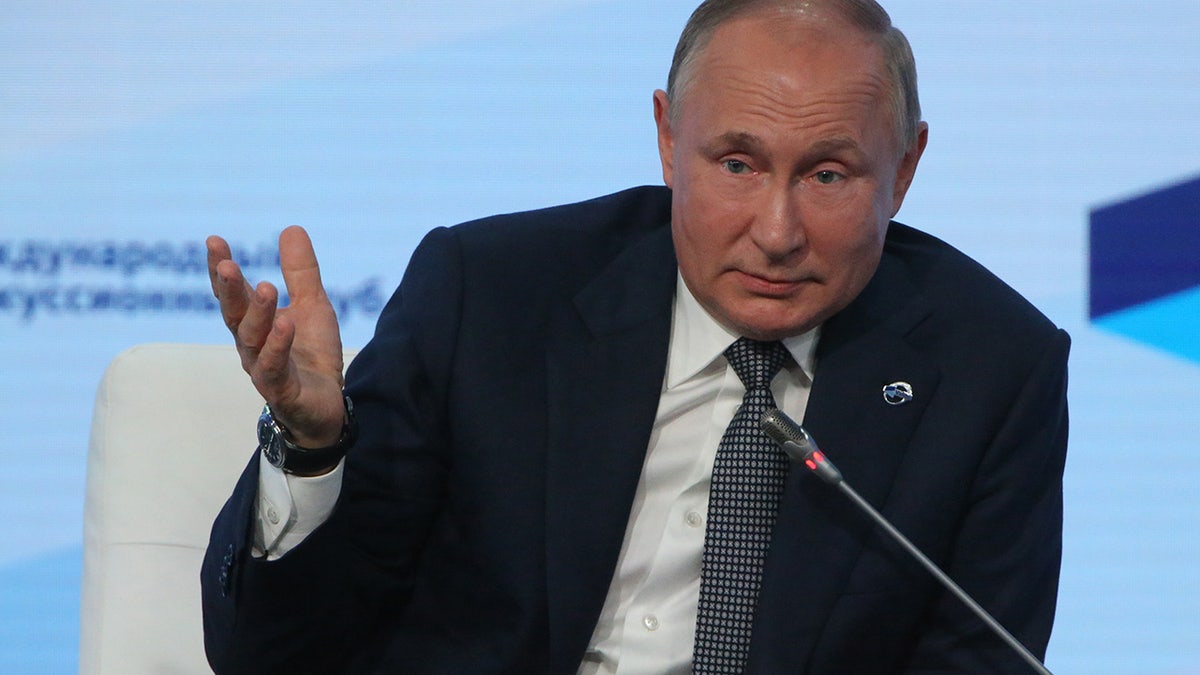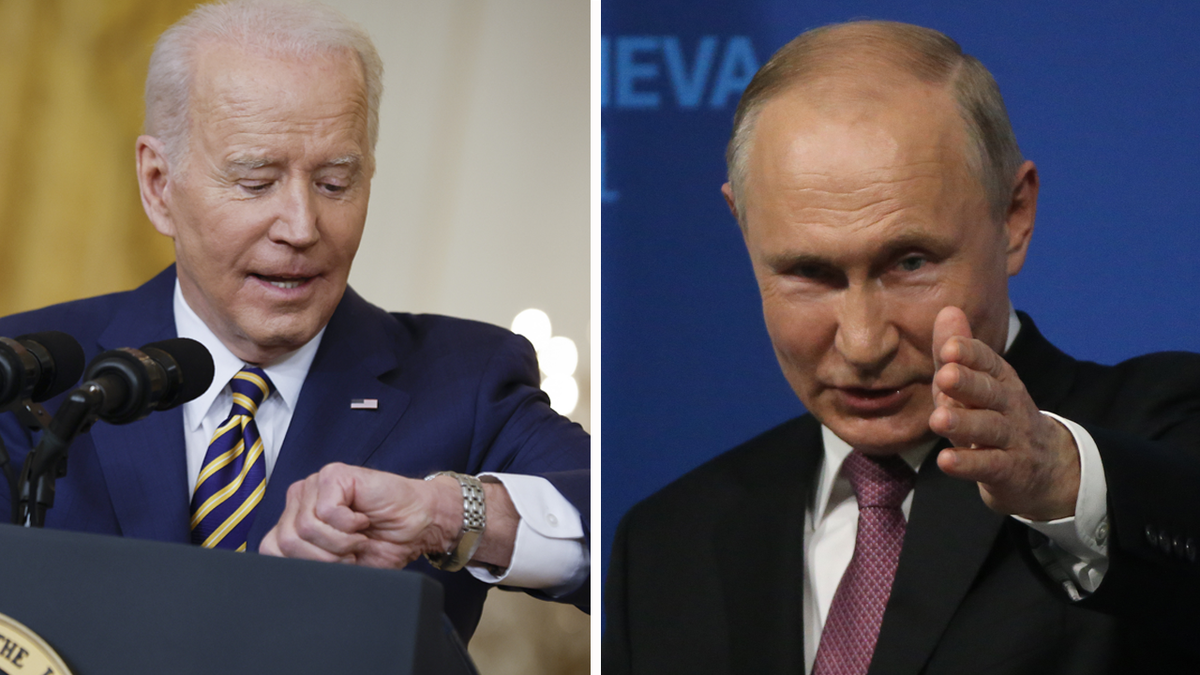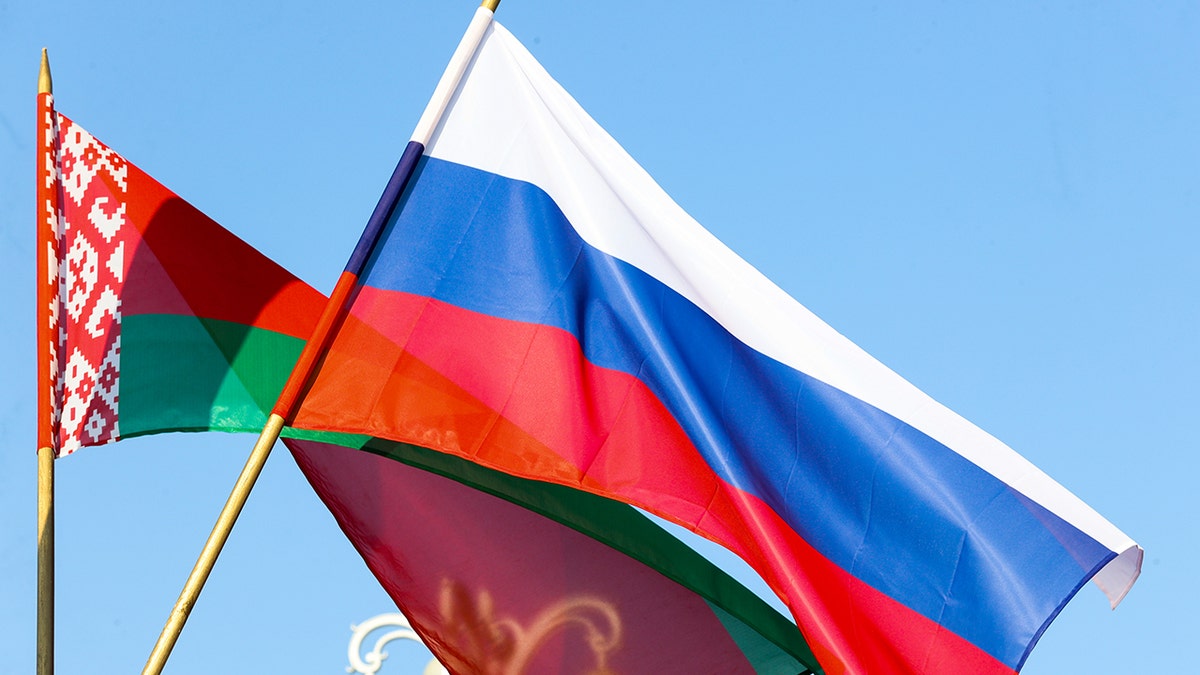Russia expert: Are US sanctions causing unintended consequences in Russia?
Clint Ehrlich offers analysis on 'Tucker Carlson Tonight'
Despite widespread support among the Democratic and neoconservative establishment in Washington, increasingly tough sanctions on Russia and oligarchs linked to Vladimir Putin may actually end up hurting the United States and bolstering the ex-KGB agent in the long run, a Russia policy analyst told "Tucker Carlson Tonight" Thursday.
Host Tucker Carlson noted how sanctions appear superficially to be an easy way to get tough with an adversary, especially after Putin invaded Ukraine and started committing alleged war crimes against civilians.
"Do the sanctions punish the people they're intended to punish? And … are there unintended consequences that we should be thinking about? Good intentions are not enough. You have to care about the effects of your policies. That's how adults make decisions," Carlson said.

Russian President Vladimir Putin speaks during the Valdai Discussion Club's plenary meeting in Sochi, Russia ( Mikhail Svetlov/Getty Images)
Clint Ehrlich, a Russia policy expert, told Carlson that the sanctions against the Kremlin may be helping Putin – especially at home.
He cited sources on the ground who reported that the autocrat's popularity spiked 10 points in the time since the West took action against the Russian economy, and companies like Visa, McDonalds and other business titans either banned or pulled out of operations in the country.

Presidents Biden and Putin (Chip Somodevilla/Getty Images | Mikhail Svetlov/Getty Images)
"I know individuals on the ground in Russia who were frankly anti-Putin and pro-Western before this happened, and they've been impacted by these sanctions so much that they're now really turning against the West," he said.

Russian and Belarusian flags wave during a wreath laying ceremony at the Victory Monument. (Ramil Nasibulin TASS via Getty Images)
Ehrlich added that another consequence has been Russia further endearing itself to China – and due to it being blocked from the global banking system, the pair may seek to create a parallel monetary system, thereby weakening the dollar and putting its global fiat status at risk.
"Any state has to consider the risk that if it holds dollars as a reserve currency for its central bank, that those assets or other fiat assets that are under the control of the West could be frozen," he said. "It frankly undermines our influence very directly."
"What we've effectively done is starting to re-erect the Iron Curtain. It was our policy during the Cold War to try to integrate Russia with the West, to try to integrate them politically and economically. Instead, what we've done is isolate them. And so essentially, we've created a new North Korea, but this time with 6,000 nuclear weapons."
"And so that doesn't advance our national interests and frankly, it threatens global security."

